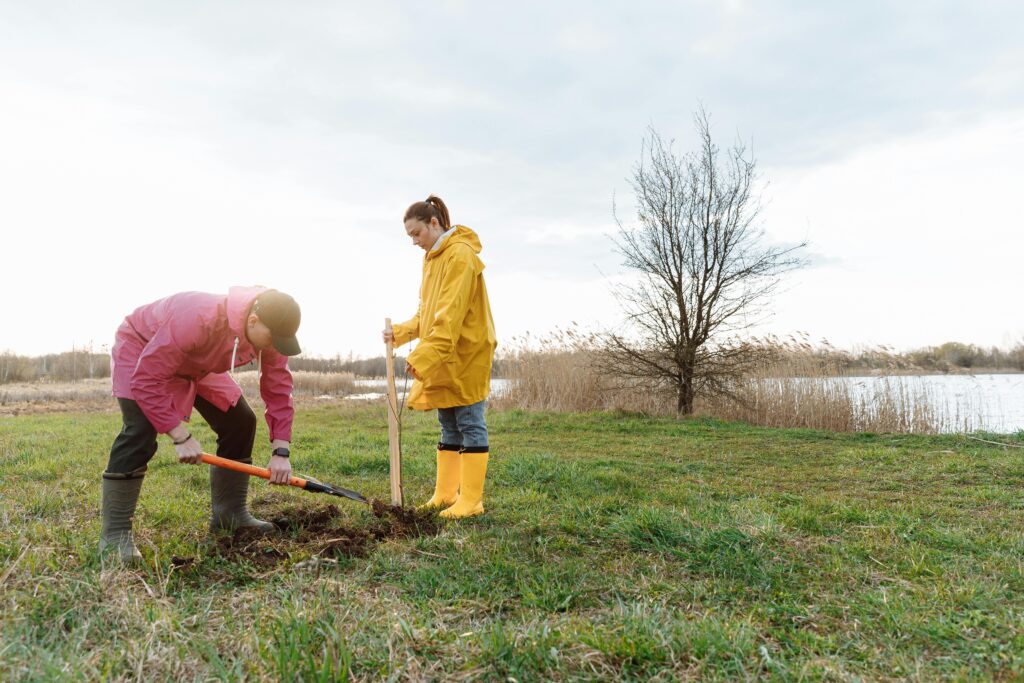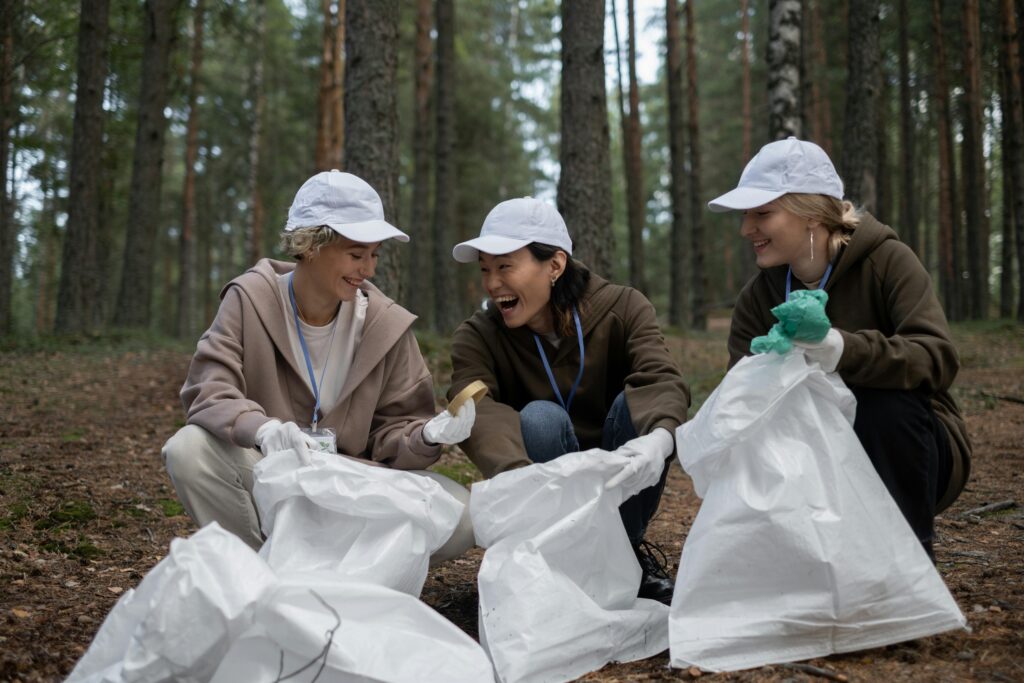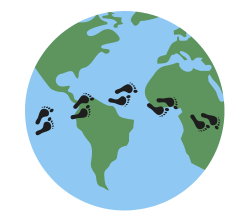So you want to find a green job …
One of the ways that people help the planet is through working in a job with an environmental focus.
I think we can all agree that job searching is no fun. From sifting through job postings and customizing applications to preparing for job interviews and dealing with ghosting and rejection, the whole process can be frustrating and discouraging.
Finding a green job can be particularly tough, especially if you don’t have an environmental background.
In this post, I share what I’ve learned from my time searching for a green job and eventually finding one. I won’t tell you how many postings I applied for, but there were a lot!
I won’t get into topics like writing resumes and cover letters and preparing for job interviews since there are lots of articles online about that (a good starting point is Indeed’s Career Guide).
What is a green job?

In broad terms, green jobs contribute to protecting the environment and sustainability. This may look, for example, like reducing waste or greenhouse gas emissions, improving energy efficiency or restoring ecosystems. According to ECO Canada’s Job Posting Analysis, 12.2% of online job postings in Canada in 2023 were considered environmental jobs.
Green jobs can be directly in the environmental sector, for example in renewable energy or climate change adaptation, or they may involve greening an organization’s operations. You could work for different kinds of organizations, including businesses, government and non-profits, or even in health care or education. And green jobs can have a range of job titles, from ones with a clear environmental focus like solar panel installer or forestry technician, to support roles like marketing and HR.
Green jobs can look like many different things, but their environmental focus unites them!
Tips for finding a green job
There are lots of resources to help you find a green job. Here are some resources and approaches that I’ve found helpful or heard about from others!
Check green job boards
Checking green job boards is a good starting point for finding environment-related job postings. Here are some of the top green job boards in Canada:
You can also check out organizations like Youth Climate Lab, Green Career Centre and re·generation, which regularly share job postings on their social media channels. And some non-profit and charity job boards, like CharityVillage and WorkInNonProfits.ca, post some environmental jobs.
If you have specific organizations in mind that you want to work for, following them on social media and checking their website regularly is a good way to learn about open roles.
Do education or training related to the environment and climate change
If you know that you want to devote your career to the environment, you may decide that it would be beneficial to study something environmental.
To get started on your research, check out these lists of environmental programs at Canadian colleges and universities:
- Programs accredited by ECO Canada
- Canadian College and University Environmental Network environmental program directory
- Sustainability-related graduate programs
Personally, I’ve been eyeing the graduate programs offered by Royal Roads University!
If you don’t want to do a full university or college program, there are online training programs that can help you get up to speed on all things environment and climate change. A few that I’ve heard good things about are Terra.do, Talk Climate to Me, Climatebase and the Climate Reality Project.
Volunteer or participate in an environmental project

Environmental organizations like to know that you care about environmental issues! Even if you haven’t studied an environmental subject or worked on climate before, volunteering or doing a project is a good way to show your dedication.
To find volunteer roles related to the environment, try checking boards with volunteer opportunities like Volunteer Ottawa or the websites of local environmental charities. If you don’t see a role that fits, try reaching out directly and offering your services! Learn more about the benefits of volunteering in this article from ECO Canada.
When it comes to projects, you can start your own project like a blog or social media channel that educates the public about environmental issues. Or there are organizations that support youth in getting environmental projects off the ground, like Youth Challenge International, the Jane Goodall Institute of Canada (Roots & Shoots program) and Canada Service Corps.
Do networking
Networking may not be most people’s cup of tea (it’s certainly not mine), but it is a helpful way to build connections and learn more about the environmental field.
Attending networking events can help you increase your knowledge about environmental issues and meet people working in the field. Here are a few organizations that run environmental networking events:
- Connecting Environmental Professionals (chapters in Calgary, Ottawa, Toronto and Vancouver)
- Green Drinks (various locations)
- Climate North (Toronto)
- ECO Canada (various locations and online)
- Green Career Centre (Greater Toronto Area and online)
- Atlantic Canada Climate Network (Atlantic Canada and online)
If you’re more comfortable with one-on-one conversations, informational interviews or coffee chats are another way to learn about green jobs. Try researching people who work at organizations or in industries that interest you then reaching out via a short LinkedIn message. For more coffee chat tips, check out this guide from the Green Career Centre!
Try a wage funding program or internship
Wage funding programs cover part or all of the cost of hiring you. This can make hiring you more attractive, especially if you are just starting out in your career or don’t have much environmental experience. To explore wage funding opportunities in the environmental sector, check out the Green Career Centre’s wage subsidy matching tool.
If you can’t find a full-time permanent green job, you may also want to look at shorter internships and summer jobs. These roles allow you to gain valuable experience in the environmental field. A couple examples include the Eco-internships Youth Support Program and Nature Canada’s Work to Grow program for racialized youth.
How to find a green job in Canada
Every person’s career journey and goals are different. What works for one person may not work for someone else. Try some of these tips and resources to move closer to the green job of your dreams!
Most of all, good luck on your job search! You’ve got this!
I want to know: Do you have any other tips or resources for finding a green job in Canada? What’s worked well for you? What challenges have you faced?
Categories and tags:
Share this post:

